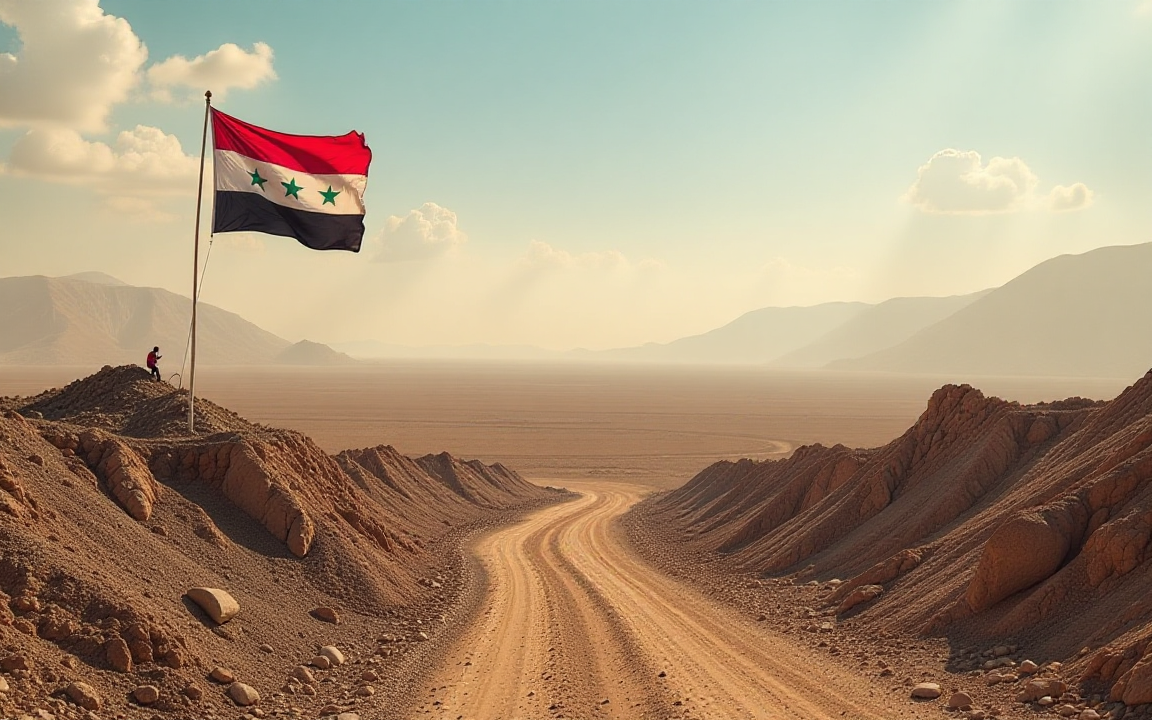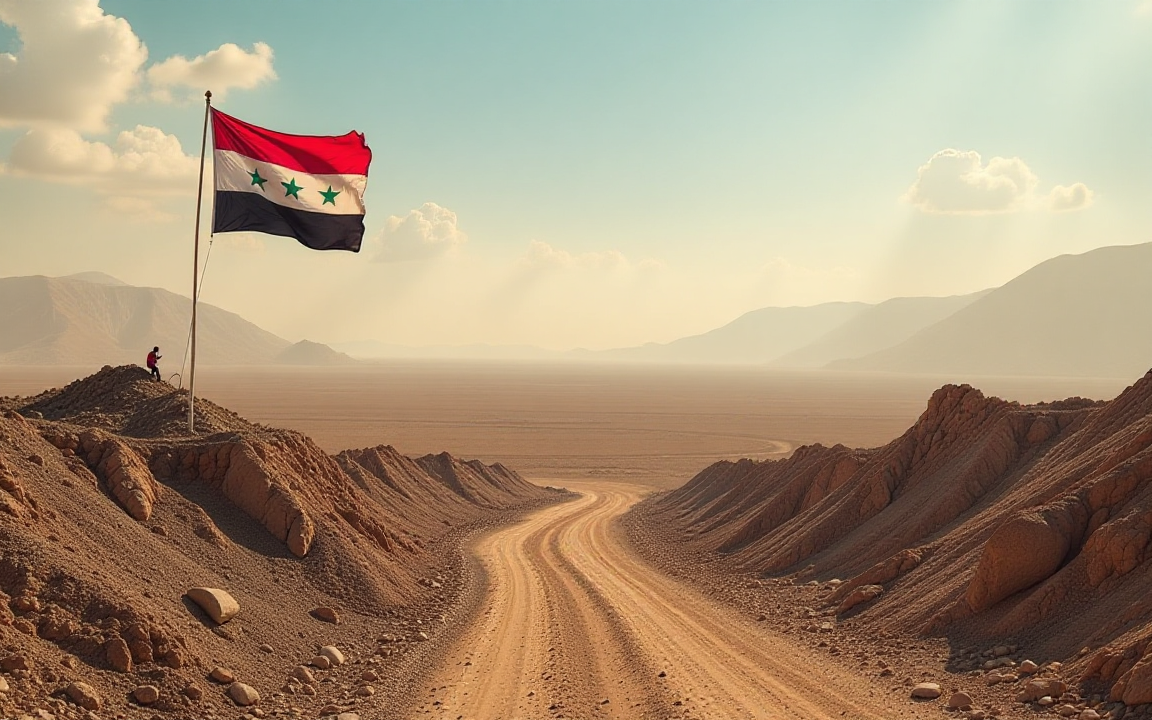
It wasn’t a battlefield victory or a sweeping democratic mandate that brought an end to Bashar al-Assad’s reign.
It was something quieter, more terminal: a regime exhausted by years of war, sanctioned into collapse, abandoned by allies, and finally left to bleed out.
On December 8, 2024, Syria’s old order disintegrated. No foreign tanks rolled across its borders. No Western coalition assembled to liberate Damascus. And when the dust settled, the man who emerged at the helm was not a seasoned diplomat or a Western-educated technocrat.
It was Ahmed al-Sharaa—better known by his nom de guerre, Abu Mohammad al-Julani—once listed among America’s most wanted terrorists.
By May, the United States had lifted sanctions. European oil giants were making calls.
Gulf capitals were opening financial pipelines. And the man once synonymous with jihadist insurgency now stood in a tailored suit in Damascus, delivering nationally televised speeches on trade corridors and reconstruction policy.
The world is witnessing something tectonic—but no one quite knows how to interpret it.
Can the West make peace with a former jihadist?
Ahmed al-Sharaa has not disowned his past.
In a recent televised interview, he spoke candidly about his time fighting in Iraq, his alignment with al-Qaeda, and his leadership of Syria’s armed opposition.
But he spoke not as a revolutionary, nor as a repentant ideologue. He sounded more like a mayor than a militant.
Sharaa was the head of Hayat Tahrir al-Sham, a militant group that ruled Idlib with an iron grip and a social policy framework that many now compare to Turkey’s AKP in its early years.
The group controlled hospitals, food supply chains, and internal security.
But unlike ISIS, it did not pursue sectarian massacres or international terror campaigns. Sharaa broke with Al-Qaeda in 2016. By 2021, he was positioning himself as a Syrian nationalist with Islamist roots instead of a global jihadist.
The question facing Washington and Brussels is whether this kind of transformation should be taken seriously.
The US has not officially removed Sharaa from its list of designated terrorists. But Donald Trump met him face to face in Riyadh last week, called him “tough” and “smart,” and lifted sanctions within 48 hours.
Why did the US drop sanctions so suddenly?
Officially, the US position is that the sanctions had achieved their purpose: Assad is gone, and a transitional authority is in place. But the timing and framing suggest something deeper.
Saudi Arabia and Turkey both backed Sharaa’s push into Damascus. They coordinated with rebel groups, tribal leaders, and local militias to ensure a mostly peaceful transition.
The once fragmented Syrian army offered little resistance. Gulf allies then made the case to Trump: either support the new order or lose Syria to Russia, Iran, and China.
Trump saw an opportunity. By lifting sanctions, the US could unlock American investment in Syria’s oil and gas sector, push back against Chinese infrastructure projects, and reduce the financial burden of maintaining anti-ISIS operations.
Sharaa, for his part, offered to assume control of Kurdish-run detention camps in the northeast and to keep the 1974 disengagement agreement with Israel in place.
There is still congressional resistance. Sharaa’s background makes formal diplomatic recognition tricky. But as of now, American businesses can enter Syria legally. And that changes everything.
Is Syria actually open for business?
As of now, Syria’s economy is broken. GDP is less than a third of its pre-war level. Other comparisons with 2021 show even greater difference.
Inflation remains high, electricity is rationed, and nearly 80% of the population lives in poverty.
The Syrian pound has lost more than 90% of its value over the past decade. Foreign reserves are close to empty.

But these same conditions are what make it attractive to investors. Land is cheap. Labor is available. And infrastructure, though devastated, is now open for rebuilding without legal restrictions.
Sharaa has made it clear that he wants a Western-led reconstruction. He has spoken to US and French oil firms, logistics providers, and telecom players.
His team is preparing a plan modeled loosely on post-war Iraq and post-genocide Rwanda: rebuild first, reform later.
Qatar and Saudi Arabia are already lining up investments. The Gulf sees this as both a strategic hedge against Iran and an economic opening.
Syrian officials have also floated the idea of repaying reconstruction debt through long-term energy contracts, especially in the phosphate and natural gas sectors.
Where does justice fit in this new picture?
This is the part that gets overlooked. Amnesty International issued a report last week warning that if Syria does not address past crimes, including torture, mass disappearances, and civilian killings, the new regime risks repeating the cycle of violence.
Sharaa has promised justice. A Transitional Justice Commission was created in March.
A separate body for missing persons was announced in February. But so far, victims’ families say they’ve seen no meaningful engagement.
There are also concerns about the integration of former fighters into the new army and police.
Some of them were part of armed groups accused of war crimes. Amnesty has demanded a full vetting process and civilian trials for any war-related abuses.
The most politically sensitive incident involves the killing of Alawite civilians on Syria’s coast in March.
The new government launched an investigation, but no results have been made public yet.
For Sharaa to move from de facto power to durable legitimacy, these investigations will matter more than any investment deal.
What happens if Syria succeeds?
This is the uncomfortable question. If Ahmed al-Sharaa manages to hold Syria together, attract investment, reduce violence, and open regional trade routes, what does that say about the last fifteen years of policy?
The West has spent over a decade trying to isolate Assad, support moderates, and avoid empowering Islamists.
That policy failed.
Now, a man once considered the face of the enemy is sitting in the presidential palace, being welcomed by the same Gulf leaders who once funded opposition fighters to defeat him.
This is not a return to authoritarian stability. It’s something more fluid.
Sharaa is not Assad. He doesn’t have a ruling family. He doesn’t appear interested in dynasty. He governs through negotiation, delegation, and leverage.
Whether that will last is anyone’s guess. But for now, Syria is functioning again.
Ahmed al-Sharaa is not a symbol of national rebirth. He is a symbol of what happens when every other option fails.
That doesn’t mean he can’t succeed. It just means success will look different from what anyone imagined.
And if he does rebuild Syria, with the help of American money, Gulf diplomacy, and Western markets, the rest of the region will be watching closely. Not to celebrate. But perhaps to copy.
The post From most wanted to president: what’s next for Syria’s revolution? appeared first on Invezz
